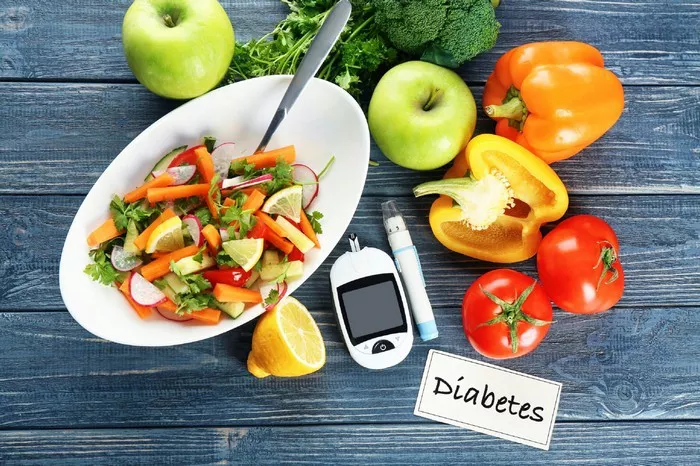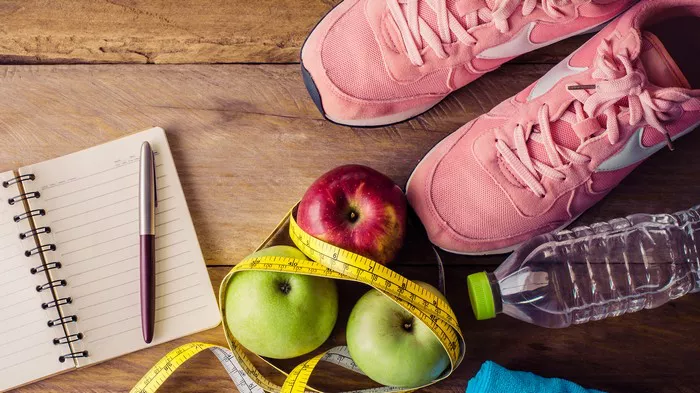Diabetes is a condition that affects millions of people worldwide. Proper management of blood sugar levels is crucial to preventing complications and maintaining overall health. One of the most important aspects of managing diabetes is a well-balanced diet, which plays a critical role in controlling blood glucose levels. However, not all foods are suitable for individuals with diabetes, as certain items can cause spikes in blood sugar, leading to potential health risks.
In this article, we will explore the types of foods that are not recommended for people with diabetes. It is important to note that diabetes management is individualized, and a diet plan should always be discussed with a healthcare professional. However, knowing which foods to avoid can help individuals make more informed decisions about their meals, ultimately aiding in better diabetes control.
The Impact of Diet on Blood Sugar Levels
Before diving into specific foods, it’s essential to understand how diet impacts blood sugar levels. Carbohydrates are the primary nutrients that influence blood sugar. When a person consumes carbohydrates, the body breaks them down into glucose, which enters the bloodstream. For someone with diabetes, the body’s ability to produce insulin (which helps regulate blood sugar) is impaired, or the body may become resistant to insulin. As a result, blood glucose levels can rise to unhealthy levels.
Additionally, some foods can cause more significant spikes in blood sugar than others. These foods are typically high in refined sugars, simple carbohydrates, and unhealthy fats, which can lead to rapid increases in glucose levels. Monitoring the glycemic index (GI) of foods—how quickly they raise blood sugar—can be helpful for individuals managing diabetes.
Foods High in Refined Sugar
Refined sugars are a significant concern for individuals with diabetes, as they can cause sharp increases in blood glucose levels. These sugars are quickly absorbed by the body, leading to an immediate spike in glucose levels. Foods that are high in refined sugar include:
Sugary Beverages: Sodas, sweetened teas, energy drinks, and fruit juices with added sugars are common culprits. These beverages are not only high in sugar but often contain little to no nutritional value. Even fruit juices, though they may seem healthy, can quickly increase blood sugar due to their high sugar content and lack of fiber.
Candies and Sweets: Traditional candies, chocolates, and sugary treats like cookies, cakes, and pastries are loaded with refined sugar. These foods can cause a rapid increase in blood glucose levels and provide little nutritional benefit.
Breakfast Cereals: Many commercially available breakfast cereals are high in refined sugar. Although some cereals may be marketed as healthy, it’s important to check the ingredient list for hidden sugars.
Ice Cream and Frozen Desserts: Ice cream, frozen yogurt, and other sweet frozen treats are often packed with sugar and fat. These can cause a rapid rise in blood sugar, particularly if consumed in large quantities.
Baked Goods: Foods such as muffins, pastries, and doughnuts are typically made with refined white flour, sugar, and unhealthy fats. These ingredients not only contribute to increased blood sugar but also contribute to weight gain, which can worsen insulin resistance.
Highly Processed Carbohydrates
Refined carbohydrates, such as those found in white bread, pasta, and white rice, are digested quickly by the body, leading to rapid increases in blood sugar. These foods have a high glycemic index, meaning they cause significant fluctuations in glucose levels. For individuals with diabetes, these foods can be problematic as they provide a quick source of sugar without offering much in terms of fiber or other nutrients.
White Bread and Rolls: Made from refined flour, white bread and rolls are quickly converted into glucose in the body. These foods provide little to no fiber, which is essential for slowing down the absorption of sugar.
White Rice: Like white bread, white rice is a refined carbohydrate that lacks the fiber found in whole grains. When consumed, it can lead to rapid spikes in blood sugar.
Pasta Made from Refined Flour: Pasta made from white flour is another processed carbohydrate that can quickly elevate blood glucose levels. Whole grain pasta is a better option as it contains more fiber and has a lower glycemic index.
Snack Foods and Chips: Many packaged snack foods, including chips, crackers, and pretzels, are made from refined flour and are often high in unhealthy fats and sodium. These snacks can contribute to blood sugar spikes and may lead to overeating, further complicating diabetes management.
Trans Fats and Unhealthy Fats
Fats are an essential part of the diet, but not all fats are created equal. Trans fats and certain unhealthy fats can worsen insulin resistance, increase inflammation, and contribute to the development of heart disease, which is a common complication of diabetes. People with diabetes should avoid foods high in trans fats and focus on healthier fats.
Fried Foods: Deep-fried foods like French fries, fried chicken, and other fast food items often contain trans fats. These unhealthy fats can increase inflammation and insulin resistance, making it harder to manage blood glucose levels.
Packaged Snacks and Baked Goods: Many commercially packaged snacks and baked goods contain trans fats, which are used to increase shelf life and improve taste. These fats are harmful to heart health and should be avoided, especially by individuals with diabetes.
Margarine and Shortening: Some margarines and shortenings contain trans fats, which should be avoided due to their negative effects on insulin sensitivity and cardiovascular health.
Processed Meats: Processed meats like sausages, hot dogs, and bacon often contain unhealthy fats, sodium, and preservatives. These foods can increase the risk of heart disease and should be consumed sparingly.
High-Fat Dairy Products
While dairy products can be a good source of calcium and protein, certain high-fat dairy products should be limited for individuals with diabetes. These products are often high in saturated fats, which can raise cholesterol levels and increase the risk of heart disease. The following dairy products should be consumed in moderation:
Full-Fat Cheese: Cheese is a good source of protein and calcium, but full-fat versions are high in saturated fats, which can contribute to elevated cholesterol levels and heart disease.
Whole Milk and Cream: Whole milk and cream contain high levels of saturated fat. Opting for low-fat or fat-free dairy products is a better choice for individuals with diabetes.
Butter: Butter is high in saturated fat and should be used sparingly. Replacing butter with healthier fats, such as olive oil or avocado, is a better option for individuals managing diabetes.
Alcohol and Its Impact on Blood Sugar
Alcohol can have a significant impact on blood sugar levels, especially if consumed in excess. Alcoholic beverages can cause blood sugar levels to either spike or drop, depending on the type of drink and whether it is consumed with food. For individuals with diabetes, moderation is key when it comes to alcohol consumption.
Beer: Beer is a carbohydrate-rich beverage that can cause a rise in blood sugar levels. Some types of beer also contain added sugars, which can worsen blood glucose control.
Sweetened Cocktails: Cocktails made with sugary mixers, syrups, and juices can quickly raise blood sugar levels. It’s best to avoid sugary cocktails and opt for drinks like vodka or gin mixed with water or sugar-free soda.
Wine: Wine, particularly sweet wines, can also affect blood glucose levels. While moderate consumption of dry wine may be acceptable for some individuals, it’s important to monitor blood sugar levels closely after drinking.
Foods High in Salt
A diet high in sodium can lead to high blood pressure, which is a common complication of diabetes. Processed foods, canned goods, and restaurant meals are often high in salt, which can contribute to elevated blood pressure and poor kidney health.
Canned Soups and Processed Foods: Many canned soups, frozen meals, and processed foods are loaded with sodium. These foods should be limited or avoided, as they can increase the risk of heart disease and high blood pressure.
Salty Snacks: Snack foods like chips, pretzels, and salted nuts are high in sodium. Opt for unsalted snacks and foods that are low in sodium to better manage blood pressure and overall health.
Foods High in Artificial Sweeteners
While artificial sweeteners are often marketed as a healthier alternative to sugar, they can still have negative effects on blood sugar and insulin levels. Some studies suggest that consuming artificial sweeteners may increase cravings for sweet foods, leading to overeating. Additionally, certain artificial sweeteners can cause digestive issues or interfere with gut health.
Diet Sodas: Diet sodas and sugar-free beverages often contain artificial sweeteners like aspartame, sucralose, or saccharin. While these drinks don’t raise blood sugar directly, they may have long-term effects on insulin sensitivity and overall health.
Sugar-Free Candy: Sugar-free candy and desserts often contain artificial sweeteners, which can affect blood sugar regulation over time. It’s better to consume whole foods with natural sweetness, such as fruits.
Conclusion
For individuals with diabetes, choosing the right foods is essential to managing blood glucose levels and reducing the risk of complications. Foods high in refined sugars, processed carbohydrates, unhealthy fats, and salt can all lead to spikes in blood sugar and worsen the condition. By avoiding these foods and focusing on a balanced diet that includes whole grains, lean proteins, healthy fats, and fiber-rich vegetables, individuals with diabetes can maintain better control over their blood glucose levels and improve their overall health.
It’s important to remember that every individual is unique, and dietary needs may vary. Consulting with a healthcare provider or a registered dietitian is essential for developing a personalized meal plan that supports diabetes management and overall well-being.
Related topics:























